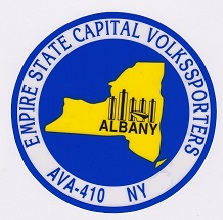
Empire State Captial Volkssporters
Cooperstown, New York
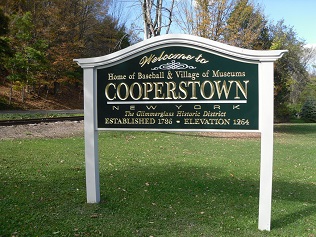
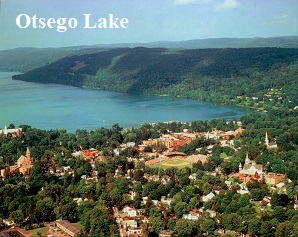
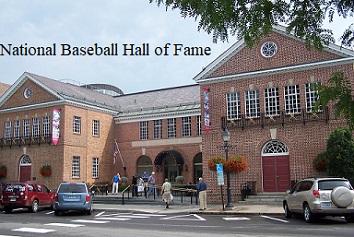
1786 - Cooperstown New York was founded in by Judge William Cooper, father of early American author James Fenimore Cooper. The village is located in central New York at the south end of nine-mile long Otsego Lake.
1779 - Otsego Lake is the source of the Susquehanna River and it was here that General James Clinton built a dam to raise the level of the lake to ensure a good flow down the river. When the dam was broken, Clinton’s revolutionary soldiers and 200 boats floated down the river and joined General John Sullivan’s army at Tioga to pursue the Indian allies of the British.
1839 - Baseball was “invented” by Abner Doubleday in a Cooperstown field. The game consisted of a “tosser”; a batman using a 4” flat board for a bat; and others who wanted to play being scattered all over the field to catch the batted ball. Whoever caught the struck ball would be the next batter.
Cooperstown is home to the Baseball Hall of Fame, the Farmer’s Museum and Fenimore House (the Fenimore Art Museum).
circa 1845 - The Farmer’s Museum provides interplay among trades, village life and agriculture in New York State. The museum, one of the oldest living history museums, features exhibits, craft demonstrations and hands-on activities that bring history to life
The Fenimore Art Museum, which is also the headquarters for the New York State Historical Association, houses one of the greatest collections of Native American folk art, contemporary art and memorabilia associated with James Fenimore Cooper, America’s first novelist.
The houses in Cooperstown date back to the late 1790’s and early 1800’s. The village is also home to several classic bed and breakfast establishments and a grand Victorian style hotel, the Otesaga Resort Hotel, on the southern shore of Lake Otsego.
One of the most prominent families in Cooperstown is the Clark family. Family patriarch Edward Clark was Isaac Singer’s lawyer and later became the president of the Singer Sewing Machine Company. His grandson Edward S. Clark built the local hospital for Mary Imogene Bassett in 1917-1918. This hospital has grown to become a full service, modern teaching hospital. The Clark Family has given Cooperstown many of its public buildings and maintains their philanthropic interest in the village.
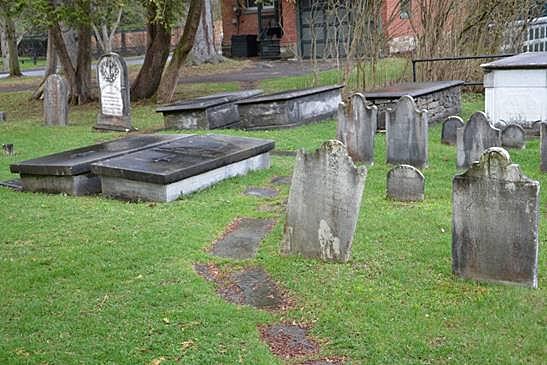 |
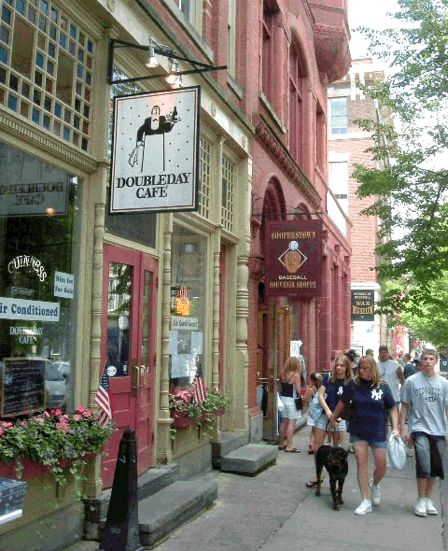 |